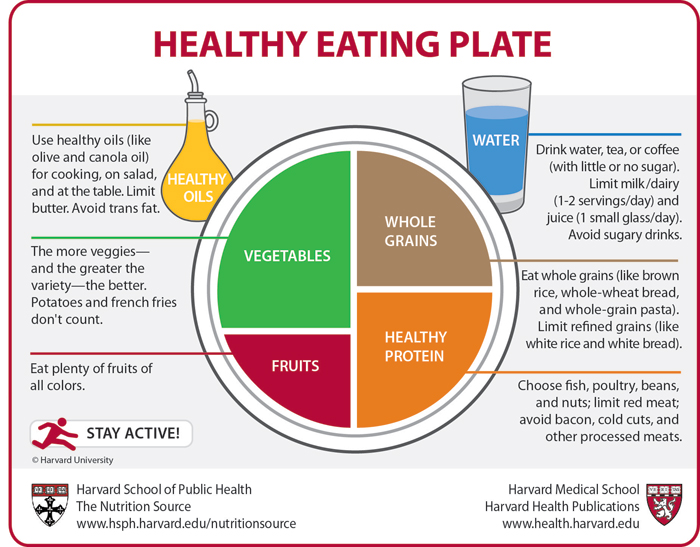Avon Longitudinal Study of Parents and Children finds eating healthy can slightly raise a child’s IQ
Research is finding that a healthy diet will lead to a higher IQ. On the flip side, eating poorly can lower a child’s IQ. The findings were based on a number of studies including the Avon Longitudinal Study of Parents and Children, and were published in the Journal of Epidemiology and Community Health.
This same study found evidence that eating healthy can slightly raise a child’s IQ
Of interest regarding the rise of children being diagnosed with speech delays and impairments including autism and apraxia;
“Snips and snails, and puppy dog tails That’s what little boys are made of!” Or is it today “Sodas and snacks, and Mc Donalds Big Macs?”… We already know that junk food contributes to today’s obesity epidemic. But did you know that how you feed your child will affect his or her academic abilities, growth, IQ, verbal skills, and overall health and development.
You are what you eat. Meal type, socio-economic status and cognitive ability in childhood
According to research, the toxic diet that contributes to the obesity epidemic could also be harming our intellect. Indeed, it appears that childhood nutrition has longstanding effects on IQ, even when we take into account previous intelligence and socio-economic status (SES).
The research, by Dr. Sophie von Stumm (a Lecturer in Psychology at Goldsmiths, University of London), examined the longitudinal effects of type of diet on IQ in a sample of about 4,000 Scottish children, aged 3 to 5. Although the idea that food affects brain development is commonsensical, prior to Dr. von Stumm’s study, research had examined only specific types of food groups (fish, margarine, omega 3 oils, etc.). In her study, Dr. von Stumm compared the effects of two more generic or over-arching types of diet, namely fast versus “slow” food (food that is freshly cooked).
Researchers found early diet seemed to affect the child’s later verbal skills.
The Connection Between Good Nutrition and Good Cognition
In another study by the Oregon Health & Science University in Portland, published in Neurology December 28th, 2011, biomarkers in the blood were used to correlate nutrition with brain health, both good and bad.
The researchers found some striking connections between nutrition and brain health. This study also found that those people who had higher levels of healthy nutrients in their body had higher scores on cognitive tests than people with lower levels.
Tips:
Each day your child requires essential nutrients. Essential nutrients are those that our bodies can’t produce and need to consume. This includes the 22 key natural vitamins and minerals, soluble fiber, Omega 3’s, and all the Branched-chain amino acids (BCAAs) and essential amino acids including Alanine, Arginine, Aspartic Acid, Cysteine, Glutamic Acid, Glycine, Histidine, Isoleucine, Leucine, Lysine, Methionine, Phenylalanine, Proline, Serine, Threonine, Tryptophan, Tyrosine, and Valine. If your child is a picky eater and even if they are GFCF you can get those amino acids from a from the natural, casein free undenatured whey isolate protein. Also look into the health benefits of ayuvedic foods such as Turmeric, Amalaki, Haritaki, Gymnema, Green Tea, Guggul, Cocoa, Cinnamon, and Cayenne Pepper but make sure they are tested free of heavy metals, hormones, pesticides and herbicides, stimulants, preservatives, genetically modified ingredients or synthetic contaminants. With produce in general you typically can choose organic, but that only assures you that it’s grown without pesticides and herbicides, not that it’s free of heavy metals. |
Feeding your child unhealthy “junk” foods can lower your child’s cognitive abilities.
On the flipside, people with higher levels of trans fats in their blood had poorer performance in thinking and memory tests. Their MRI scans also revealed more brain shrinkage than people who had lower trans fats levels. Trans fats are found in a variety of junk foods, like fried, packaged, and fast foods.
Diet also appears to contribute to such conditions as focus or ADHD, or later learning abilities, or disabilities. As the study found, poor diets affected negatively and good nutrition affected positively.
The researchers noted, “These results are in line with previous studies we have performed in the ALSPAC cohort: overall dietary patterns in early childhood are associated with both later child behavior, in particular hyperactivity and school performance. This suggests that any cognitive/behavioral effects relating to eating habits early in childhood may well persist into later childhood, despite any subsequent changes (including improvements) to dietary intake.”
In the current study, data for 3966 children was collected and analyzed. Parents reported their children’s diets in a food-frequency questionnaires at the ages of 3, 4, 7 and finally at 8 and a half years old.
The researchers found a pattern which they put into three diet types:
- Processed or “junk” diets high in fat, sugar and convenience foods
- Traditional diets of meat, potato and vegetables
- Health conscious diets of salads, rice, pasta, fish and fruit.
The children all took IQ tests when they were eight and half using the Wechsler Intelligence Scale for Children. (also known as the WISC-IV)
The link between IQ and diet
Evidence has shown a poor diet associated with high fat, sugar and processed food content in early childhood may be associated with small reductions in IQ in later childhood.
 For each unit increase in processed food diets, children lost 1.67 points in IQ.
For each unit increase in processed food diets, children lost 1.67 points in IQ.
Evidence has shown that a healthy diet, associated with high intakes of nutrient rich foods described at about the time of IQ assessment may be associated with small increases in IQ.
Increase in IQed with healthy diet
For each unit increase in healthy diets, children gained 1.2 IQ points.
These differences in IQ remained even after taking into account other factors such as the mother’s level of education, social class and duration of breast feeding.
Other research has shown nutrition to play a vital role in health and cognitive functioning at any age. Diet affects the mitochondria, and some essential nutrients are linked with improved cognitive functioning and even neuro repair! Essential nutrients are not an option, they are essential to us daily and need to be consumed as our bodies can’t produce them.
What is sad today is that it’s cheaper to feed a family junk food than healthy food. To help address this problem, Wal-Mart Stores in January 2011, launched an initiative to provide its customers with “healthier and more affordable food choices.”
|
A retailing giant like Wal-Mart has the ability to help change diet patterns. However, ultimately, it is us, the consumer, who controls the final decision of what will be featured and sold in the stores and restaurants in the future. It is up to us to decide the health of our bodies as well as the health of our planet is a priority. It is not a theory but a fact that certain toxins as well as poor dietary choices are linked to lowered IQs. |
Feeding your child healthy
Good vs. Poor Nutrition.
We all know to survive we need certain nutrients but do you know the difference between “good nutrition” and “poor nutrition”?
Harvard just created a new ‘Healthy Eating Plate’ which breaks down the healthy foods or healthy nutrition, you should look to consume daily. The Nutrition Source, is a Web site maintained by the Department of Nutrition at the Harvard School of Public Health contains a section “What should I eat?” And specifically for children you can also check the “little people’s plate”

“The Healthy Eating Plate, created by experts at Harvard School of Public Health and Harvard Medical School, points consumers to the healthiest choices in the major food groups. The U.S. Department of Agriculture’s MyPlate, in contrast, fails to give people some of the basic nutrition advice they need to choose a healthy diet. The Healthy Eating Plate is based exclusively on the best available science and was not subjected to political and commercial pressures from food industry lobbyists. “
Certain nutrients can’t be produced by the body, but are essential for our health and well-being, so they need to be consumed; these are referred to as essential nutrients and would be part of a healthy diet. Two examples of essential nutrients include essential fatty acids which are found rich in fish oils and algae, and essential amino acids, all of which are found per serving in whey protein. It is recommended to consume a varied healthy diet to assure that all the essential nutrients are consumed throughout the day, as it’s typically highly unusual for one to consume all of their essential nutrients in a single meal.
While our society has developed such unhealthy eating habits that there is questioning about consumption of fish oil instead of french fry oil, research shows that poor nutrition puts both us as well as our future generation at risk in cognitive functioning, health, and birth defects.
“Carmichael, an associate professor in the pediatrics department at Stanford University, decided to look at the importance of overall nutrition rather than focusing on a single nutrient such as folic acid. Researchers studied 6,147 moms of babies without birth defects and 3,411 moms of babies born with NTDs and oral-facial clefts, all of whom were due between 1997 and 2005. They analyzed how closely each woman’s diet hewed to two measures of diet quality: the Mediterranean diet and the U.S. Department of Agriculture food pyramid. Both diets emphasize healthy eating from various food groups, but the food pyramid stresses the importance of also including specific nutrients.
Positive Effects Through Nutrition Specific Nutritional Strategies For Improvements In Cognition, Learning And Memory -An Exciting Direction In Research
“One thing we know is nutrition is much more complex than a single nutrient,” ~Dr. Carmichael, associate professor in the pediatrics department at Stanford University
Cognitive deficits, birth defects, health issues are some of the many severe side effects of poor nutrition. In the search to supply the boy with healthy foods, it’s difficult to know today what the nutrient value is of the fruits and vegetables, as soils have been depleted of nutrients. In a 2004 published study by Donald Davis, a biochemist at the University of Texas, it was discovered that 13 major nutrients in fruits and vegetables tracked by the Agriculture Department from 1950 to 1999, showed noticeable declines in nutritional value. Davis said “faster-growing plants aren’t able to acquire the nutrients that their slower-growing cousins can, either by synthesis or from the soil.” So the answer is slow growing vegetation it appears. (read more)
But one of the risks of slow growing nutrients is that if there are certain heavy metals in the soil it will be in every aspect of the vegetation. Even if a fast growing vegetation such as a tomato is purchased at a farmer’s market and you know they are free of herbicides and pesticides, how could you know if it’s free of heavy metals? Some are not aware that if lead, a heavy metal neurotoxin, is in soil it can be in every aspect of the vegetation growing in that soil. The 2004 study by Northwestern University ‘Lead levels of edibles grown in contaminated residential soils: a field survey’ did find that the fruits or vegetables will have the lowest amount of lead in comparison with the roots which would be highest in lead, however again as lead builds up in the body and as we know there are no safe levels of lead, we need to be aware if we are consuming foods grown in lead contaminated soils. (read more)
And while a recent study by Trust for America’s Health and the Robert Wood Johnson Foundation found obesity to be on the rise in every state of the Nation, and that about 30% of children today are overweight or obese;
As this Washington Post article explains, there are actually some opposed to First Lady Michelle Obama’s “Let’s Move” campaign towards healthier eating and activity. Is this anecdotal proof that not only children are at risk for lowered IQ from exposure to certain toxins and poor nutrition?
We do know that certain toxins and poor nutrition are linked to lower IQ in children. So, if lead and other toxins continue to be hidden dangers, and healthy options even if widely available and affordable, are shunned by consumers who illogically stand for the “right” to feed their children unhealthy processed diets instead of the “rights” of children;
Over time…if we don’t eat healthy are we headed to a world of “Idiocracy”?

